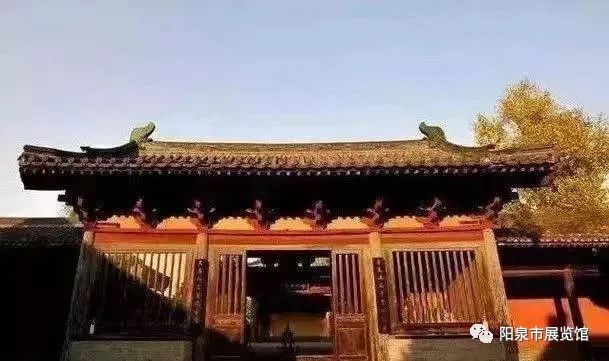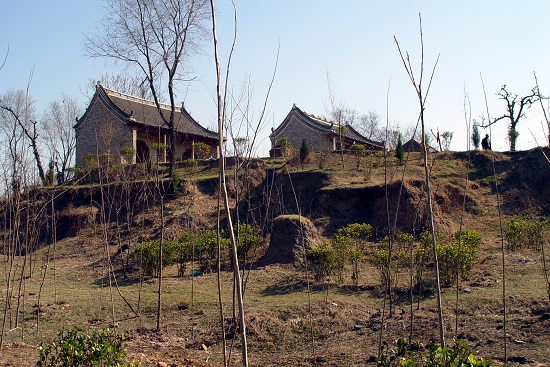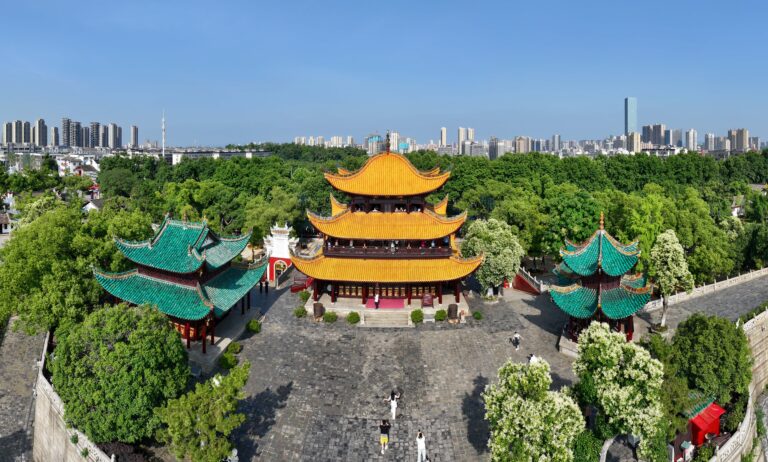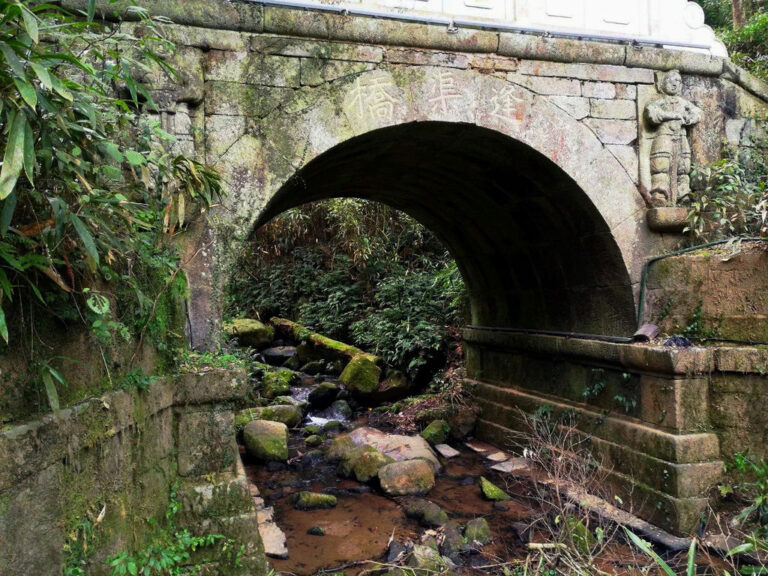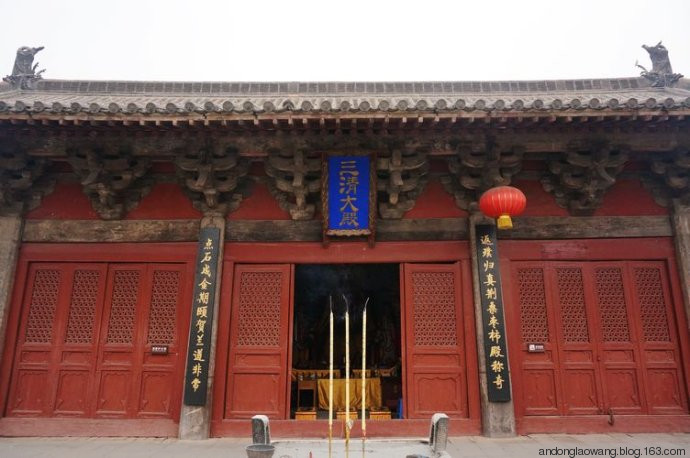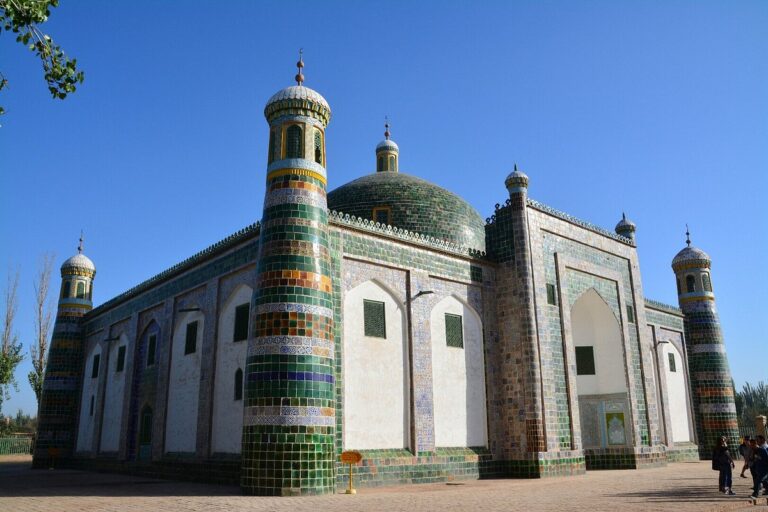Experience Traditional Flavors: Culinary Delights in Jinhua Chenwangdao Guju
An Essential Guide to Visiting Jinhua Chenwangdao Guju
In This Guide
- An Essential Guide to Visiting Jinhua Chenwangdao Guju
- The Rich History of Jinhua Chenwangdao Guju
- Main Highlights: What to See at Jinhua Chenwangdao Guju
- Planning Your Visit: A Practical Guide
- Tickets, Hours, and Booking
- How to Get There
- Local Cuisine and Accommodation
- Frequently Asked Questions
- Final Thoughts on Your Trip
Nestled in the heart of Yiwu, Zhejiang province, the Chen Wangdao Guju (陈望道故居) serves as a poignant reminder of China’s rich revolutionary history and cultural heritage. This historic residence, built during the late Qing Dynasty, is the former home of Chen Wangdao, a prominent educator, linguist, and translator renowned for being the first to translate “The Communist Manifesto” into Chinese. His contributions to education and social reform during the tumultuous early 20th century have left an indelible mark on Chinese history.
The architecture of the house reflects traditional Southern Chinese design, characterized by its white walls, black tiles, and courtyard layout, inviting visitors to step back in time. As you explore the intricacies of this quaint abode, you will uncover the life and legacy of a man who played a pivotal role in shaping modern Chinese thought. The site not only offers a glimpse into the past but also stands as a symbol of resilience and dedication to social justice.
Visiting Chen Wangdao Guju is more than just a tour of a historical building; it’s an opportunity to immerse yourself in the narratives of struggle, intellect, and progress that continue to resonate in contemporary society. Whether you are a history enthusiast, a student of literature, or simply a curious traveler, this site promises to enlighten and inspire, providing a deeper understanding of the cultural fabric that defines China today.
The Rich History of Jinhua Chenwangdao Guju
The Jinhua Chenwangdao Guju, or the Chen Wangdao Former Residence, offers visitors a glimpse into the life of one of China’s most influential intellectuals and educators. Nestled in the serene village of Fenshuitang in Yiwu City, Zhejiang Province, this historical residence dates back to the late Qing Dynasty, specifically the Xuantong period (1909-1911).
Chen Wangdao, born in 1891, was a prominent figure in China’s educational reform and a noted translator. He is best remembered for being the first to translate Karl Marx and Friedrich Engels’ “The Communist Manifesto” into Chinese. His scholarly pursuits began at a young age, with education at local institutions including the Xiuhu Academy and later, universities in Japan, where he studied literature, philosophy, and law.
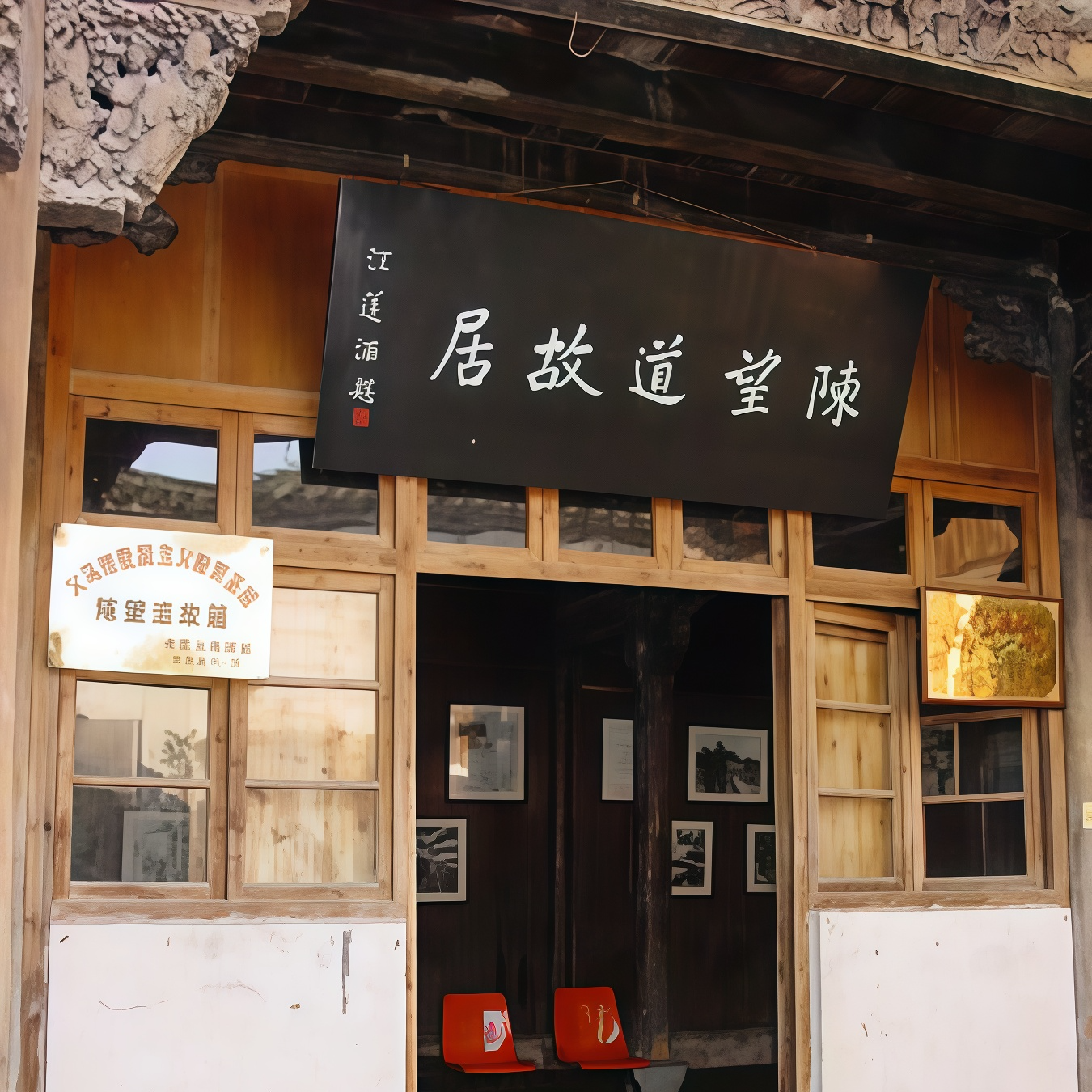
Jinhua Chenwangdao Guju.
Upon returning to China in 1919, amid the fervor of the May Fourth Movement, Chen took a bold step by teaching at Zhejiang First Normal School. He actively participated in the cultural revolution, challenging traditional norms and advocating for modern educational practices. His commitment to social justice and reform led him back to his hometown, where he undertook the monumental task of translating the “Manifesto,” a pivotal work that would shape the political landscape of China.
The residence itself reflects traditional Southern Chinese architectural styles, with its white walls and black tiles. The layout includes a central courtyard flanked by rooms that served as living quarters, providing an intimate look at the domestic life of a prominent scholar. Historical accounts highlight the significance of this home, as it was here that Chen Wangdao completed his translation work, which was published in 1920 and became the first complete Chinese edition of the text.
Throughout his life, Chen Wangdao was involved in various educational and cultural movements, promoting progressive ideas and engaging in anti-imperialist activities. He held significant positions in educational institutions, including Shanghai University, where he continued to influence generations of students until the establishment of the People’s Republic of China in 1949.
Chen’s legacy extends beyond his academic contributions; he is a symbol of courage and resilience during a tumultuous period in Chinese history. His residence, now a museum, serves not only as a tribute to his life but also as a reminder of the enduring impact of intellectual and revolutionary thought in shaping modern China. Visitors to the Chen Wangdao Former Residence can explore the artifacts and exhibits that commemorate his contributions, making it a vital stop for anyone interested in China’s rich historical tapestry.
Main Highlights: What to See at Jinhua Chenwangdao Guju
Discover the captivating history and architectural beauty of Chen Wangdao’s Former Residence, a significant cultural site located in the picturesque village of Fen Shui Tang in Yiwu, Zhejiang Province.
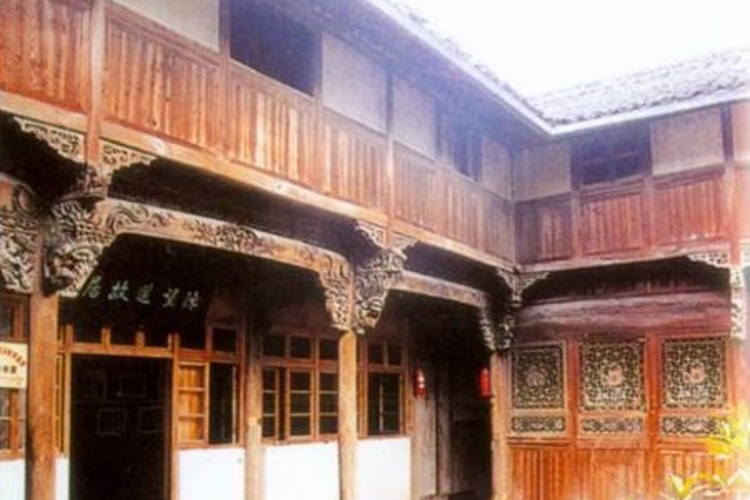
Jinhua Chenwangdao Guju.
Architectural Marvel
Built during the Qing Dynasty’s Xuantong era, this traditional courtyard residence features a classic southern Chinese architectural style. The structure consists of a central hall flanked by two side rooms, creating an inviting layout that reflects the aesthetics of the time. Visitors will appreciate the serene courtyard and the charming eaves adorned with intricate details, which provide a glimpse into the architectural heritage of the region.
A Tribute to a Revolutionary Figure
Chen Wangdao, a prominent educator, linguist, and translator, is best known as the first person to translate “The Communist Manifesto” into Chinese. His former residence not only serves as a historical landmark but also as a testament to his enduring legacy in Chinese education and revolutionary thought. Guests can explore the rooms where he lived, gaining insight into his life and the socio-political context of early 20th-century China.
Cultural Insights and Local Heritage
The residence is surrounded by the lush rural landscape of Yiwu, offering visitors a chance to immerse themselves in the local culture. While exploring the area, travelers can also visit nearby attractions such as the ancient village of He Si Lu and the tranquil Longxi Fragrant Valley. These sites enrich the experience, showcasing the natural beauty and cultural richness of Zhejiang Province.
Visitor Information
Chen Wangdao’s Former Residence is open for visitors, although it’s advisable to check the exact opening hours before planning your trip. The site is easily accessible, making it a perfect addition to your itinerary when exploring Yiwu.
Whether you’re a history enthusiast, architecture lover, or simply seeking to understand China’s revolutionary past, a visit to Chen Wangdao’s Former Residence promises an enriching experience that connects you to the roots of modern Chinese history.
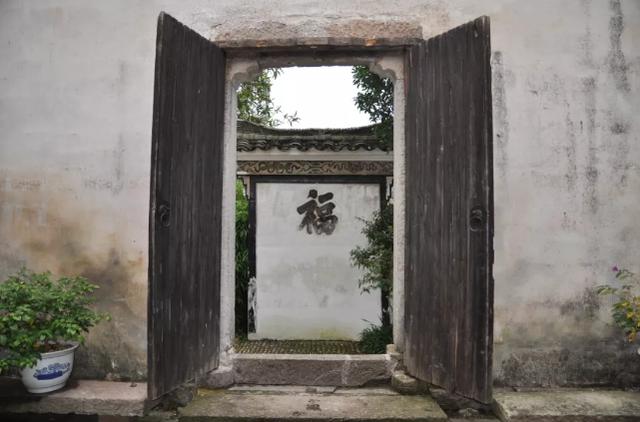
Jinhua Chenwangdao Guju.
Planning Your Visit: A Practical Guide
Practical Guide to Visiting Jinhua Chenwangdao Guju
If you’re planning a visit to the historic Jinhua Chenwangdao Guju (陈望道故居), a site dedicated to the memory of Chen Wangdao, the first Chinese translator of “The Communist Manifesto,” this guide will help you navigate your experience smoothly.
Location
Jinhua Chenwangdao Guju is located in the quaint village of Fenshuitang in Yiwu, Jinhua City, Zhejiang Province, China. The exact address is as follows:
- Address: Fenshuitang Village, Yiwu City, Jinhua, Zhejiang Province, China
Getting There
- By Air: The nearest major airport is Yiwu Airport, which is approximately 15 kilometers away. From the airport, you can take a taxi or book a ride-sharing service to reach the site.
- By Train: Yiwu Railway Station is well-connected to major cities in China. Once at the station, you can take a taxi or local bus to the Chenwangdao Guju.
- By Bus: Local buses frequently operate from Yiwu city center to Fenshuitang. Check the local bus schedules for the most convenient options.
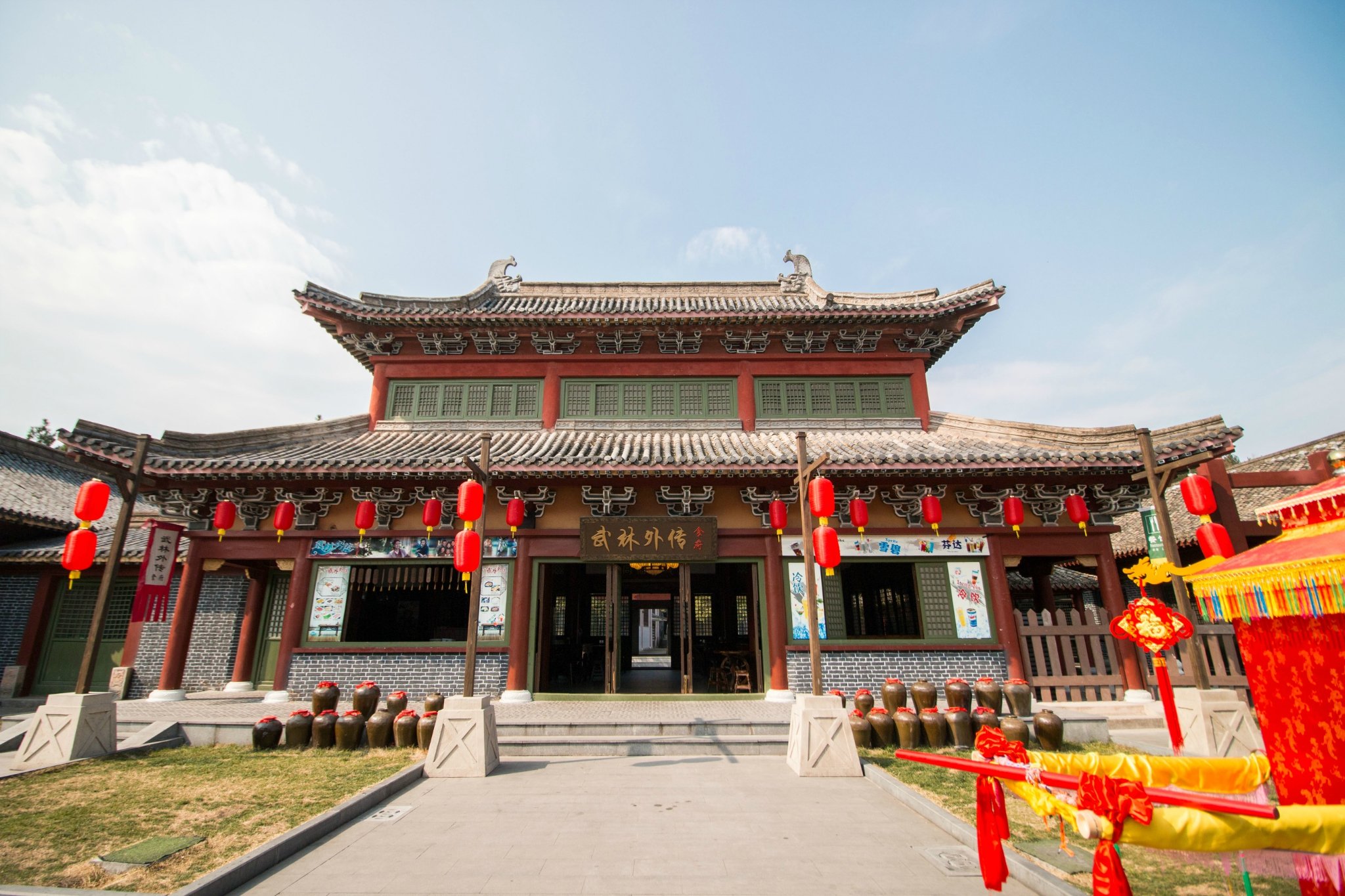
Jinhua Chenwangdao Guju.
Opening Hours
The opening hours for Chenwangdao Guju can vary, so it’s advisable to contact the site directly for the most current information before your visit. Typically, it is open daily, but it’s best to verify.
Admission Fees
While the entrance fee may change, it is generally modest. As of the latest information, the ticket price is around 10-20 RMB. However, check in advance or upon arrival for the latest rates.
What to See
- Architectural Features: The residence is a classic example of a courtyard-style building from the late Qing Dynasty, with five main rooms and two side rooms. It features a central courtyard and traditional black-tiled roofs.
- Historical Significance: This site is not just an architectural marvel but also a place of profound historical importance, as it was here that Chen Wangdao translated significant revolutionary texts that shaped modern Chinese thought.
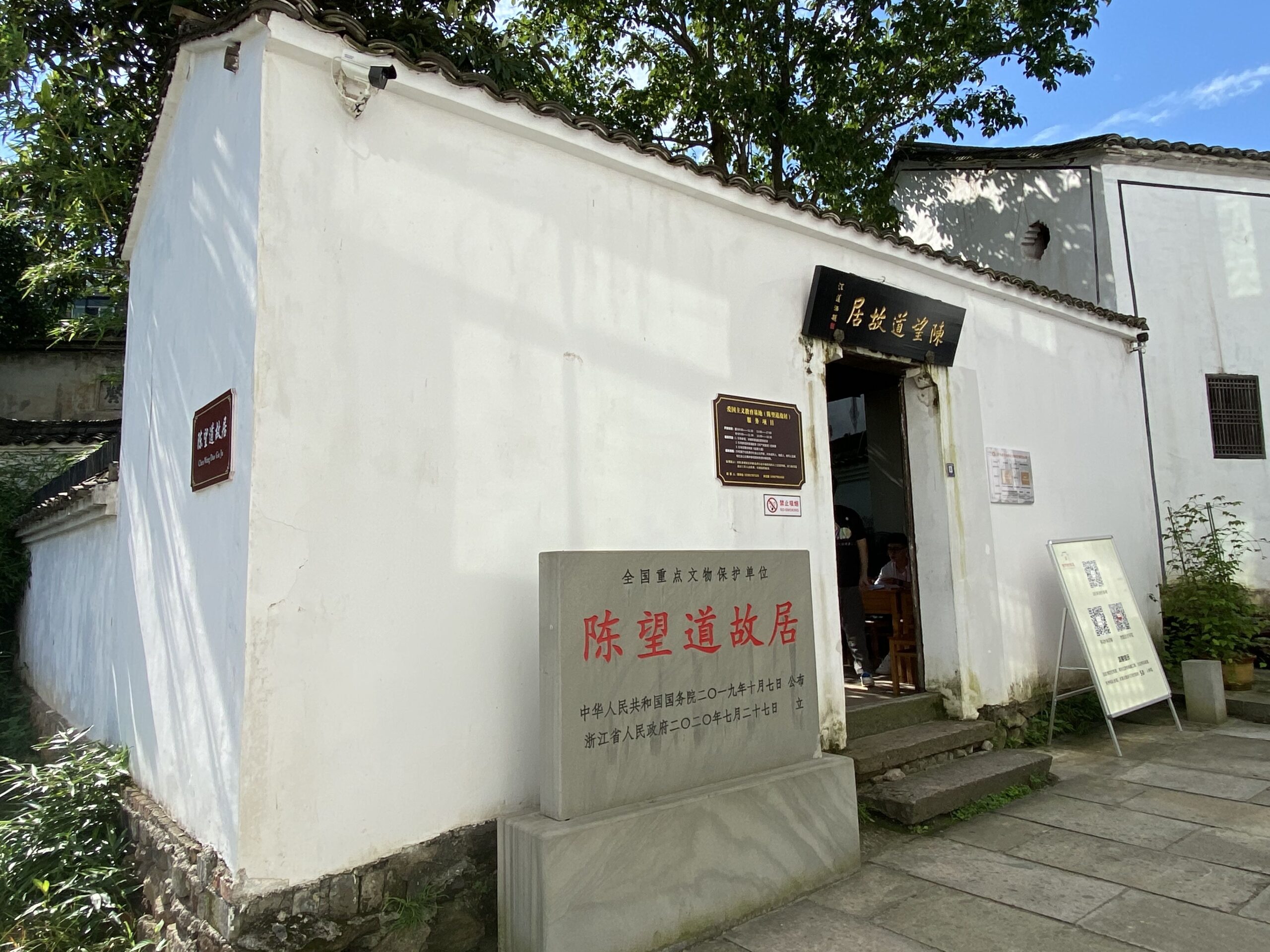
Jinhua Chenwangdao Guju.
Nearby Attractions
Combine your visit to the Chenwangdao Guju with other nearby sites:
– He Si Lu Village: A historic village known for its ancient architecture, just a short distance from the Guju.
– Longxi Fragrant Valley: A scenic area perfect for nature walks and photography.
– Local Markets: Explore Yiwu’s famous markets, known for their extensive range of products, perfect for shopping enthusiasts.
Local Cuisine
After touring the historic site, indulge in local delicacies. Nearby eateries offer a variety of traditional Zhejiang dishes. Some popular local restaurants include:
– Jiangbei Restaurant: Known for its Jiangsu and Zhejiang cuisine.
– Xiang Xie Garden: A great place for hotpot lovers.
Tips for Visitors
- Language: While some staff may speak English, it’s beneficial to learn a few basic Mandarin phrases or use a translation app.
- Respect Local Customs: As this is a historical site, be respectful of the environment and the significance of the location.
- Photography: Make sure to ask permission if you wish to take photos of locals or private property.
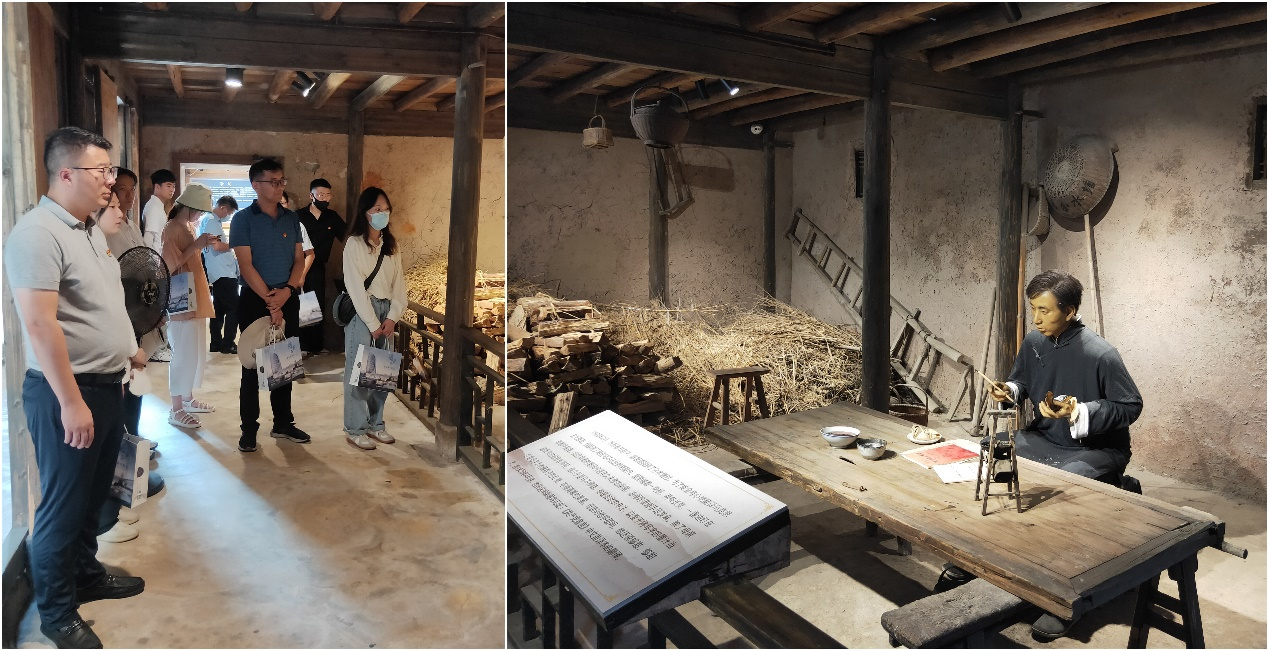
Jinhua Chenwangdao Guju.
Safety and Accessibility
Ensure your belongings are secure and be cautious of your surroundings. The site is generally safe for tourists, but keeping an eye on your personal items is always wise. The pathways around the residence are accessible, though wear comfortable shoes for walking.
Visiting Jinhua Chenwangdao Guju offers a unique glimpse into China’s revolutionary history and the life of one of its notable figures. With this guide, you are well-equipped to explore this significant cultural site. Enjoy your journey through history!
Tickets, Hours, and Booking
Visiting the Jinhua Chenwangdao Guju (陈望道故居), the historic residence of the renowned educator and translator Chen Wangdao, is a fascinating journey into China’s revolutionary past. Here’s what you need to know about tickets and visiting this significant site.
Ticket Information
-
Entry Fee: The ticket price for visiting Chen Wangdao’s former residence is approximately ¥10 (about $1.50 USD). This nominal fee provides access to the well-preserved courtyard-style home, which dates back to the Qing Dynasty and offers insights into Chen’s life and work.
-
Reservations: It is advisable to check for any changes in ticketing procedures or potential requirements for advance reservations. While many visitors can purchase tickets on-site, contacting the venue beforehand can ensure a smooth entry, especially during peak tourist seasons.
-
Operating Hours: The exact hours of operation can vary, so it’s recommended to confirm with the site before your visit. Generally, the residence is open during daytime hours, allowing you ample time to explore its historical significance and beautiful architecture.
-
Contact Information: For any inquiries or to confirm visiting hours, you can reach out to the venue at +86-579-85996789, where staff can assist with English-speaking queries.
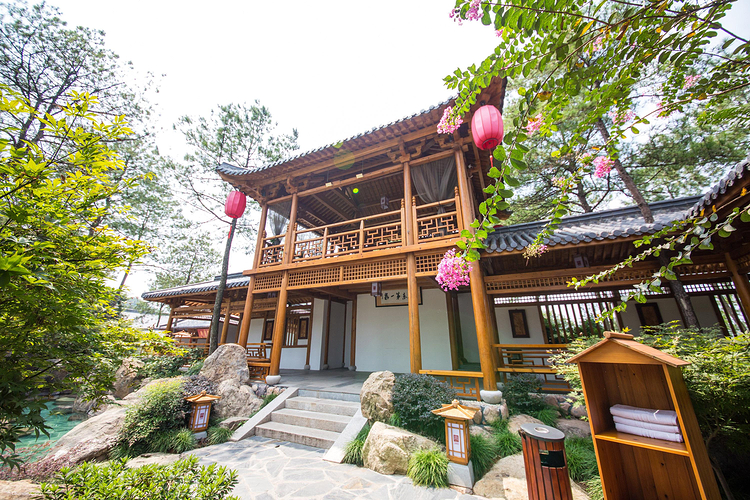
Jinhua Chenwangdao Guju.
Visitor Tips
-
Best Time to Visit: To avoid crowds and enjoy a more intimate experience, consider visiting during weekdays or early in the morning. The serene setting is particularly lovely in the spring and autumn when the weather is mild.
-
Nearby Attractions: After visiting Chen Wangdao Guju, take the opportunity to explore other nearby historical sites and natural attractions in Yiwu, adding depth to your cultural experience.
By planning your visit thoughtfully, you can fully appreciate the legacy of one of China’s influential figures while enjoying the charm of his historic home.
How to Get There
Traveling to Jinhua Chenwangdao Guju (陈望道故居), located in the picturesque village of Fenshuitang in Yiwu, Zhejiang Province, is a seamless experience thanks to the region’s well-developed transportation network. Here’s a comprehensive guide to help you navigate your way to this historical site.
Getting There
By Air
The nearest major airport to Chenwangdao Guju is Hangzhou Xiaoshan International Airport (HGH), located approximately 120 kilometers away. This airport is well-connected to various domestic and international destinations. From the airport, you can take a taxi or book a private transfer to reach Yiwu. The journey takes around 1.5 to 2 hours, depending on traffic.
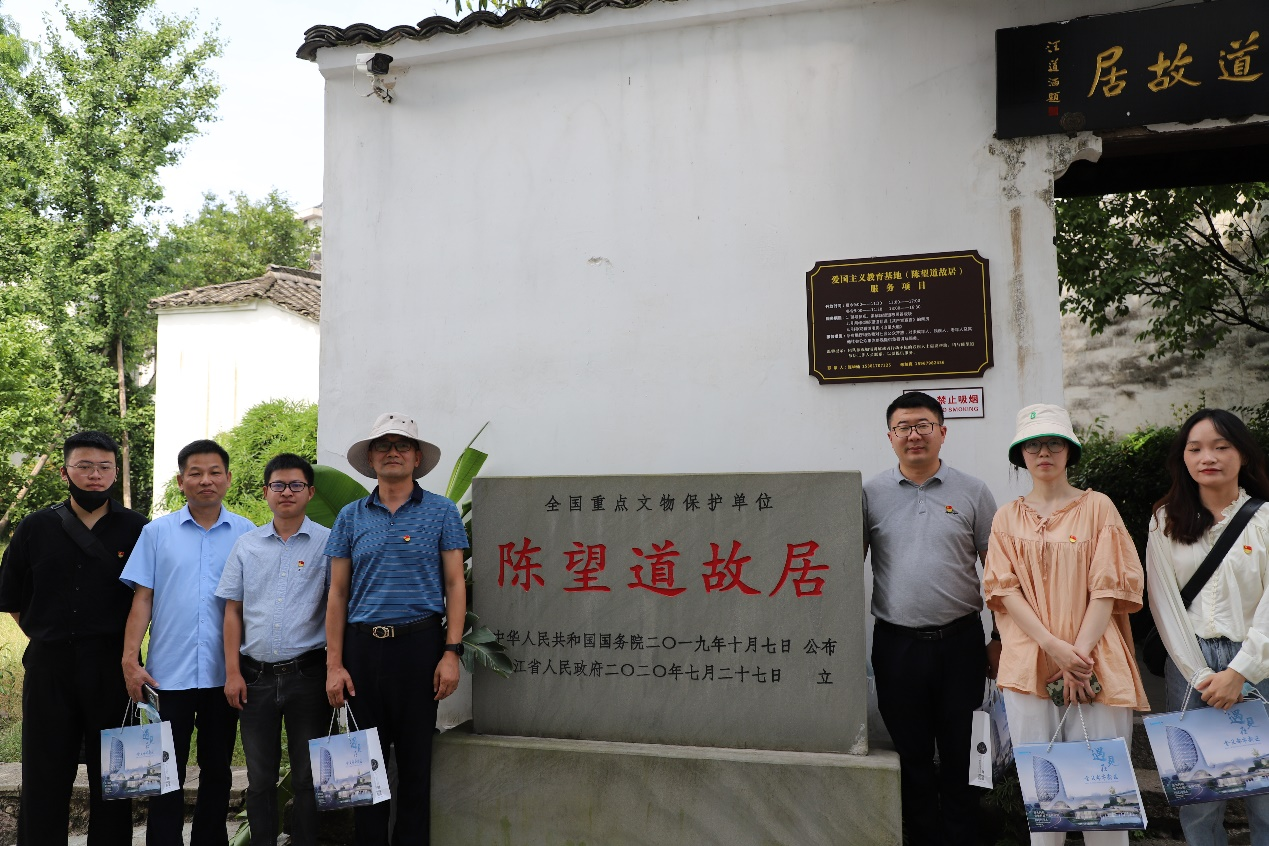
Jinhua Chenwangdao Guju.
By Train
Yiwu has a high-speed train station that is easily accessible from major cities in China. If you’re traveling from Shanghai, for example, high-speed trains run frequently and take about 1.5 hours. Once you arrive at Yiwu Railway Station, you can catch a local taxi or use ride-hailing apps like Didi Chuxing to reach Chenwangdao Guju. The distance from the train station to the site is about 15 kilometers, which typically takes around 30 minutes by car.
By Bus
For budget travelers, long-distance buses are available from various cities to Yiwu. The Yiwu Bus Station is located near the city center, and from there, you can take a taxi or local bus to Fenshuitang Village. Buses from nearby cities like Jinhua and Wenzhou are frequent and provide an economical option.
By Car
If you prefer driving, renting a car is a convenient way to explore the region at your own pace. The roads are well-maintained, and signage is available in both Chinese and English. The drive from Hangzhou or Shanghai to Yiwu offers beautiful scenery, especially as you approach the countryside.
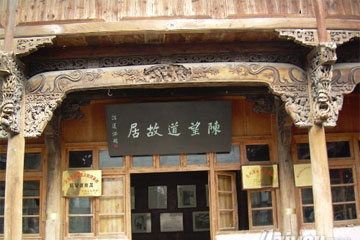
Jinhua Chenwangdao Guju.
Local Transportation
Once you arrive in Yiwu, getting to Chenwangdao Guju is straightforward. Taxis are readily available and affordable. Alternatively, you can hire a local guide who can provide transportation and insights about the site and its historical significance.
For those who enjoy a more immersive experience, consider renting a bicycle. Yiwu is relatively bike-friendly, and cycling through the local countryside can be a delightful way to absorb the scenery.
Conclusion
Whether you choose to travel by air, train, bus, or car, reaching Jinhua Chenwangdao Guju is quite accessible. With a little planning, you can easily navigate your way to this significant cultural landmark and enjoy the journey as much as the destination itself.
Local Cuisine and Accommodation
Exploring the cultural richness surrounding Chen Wangdao’s former residence in Yiwu, Zhejiang Province, can be complemented by delightful local culinary experiences and comfortable lodging options. Here are some recommendations to enhance your visit.
Dining Options
- Jiangbei Farmhouse (江北农家乐)
- Cuisine: Jiangsu and Zhejiang specialties
- Rating: 4.5/5
- Price: Approximately ¥95 per person
- Distance: About 39.2 km from Chen Wangdao’s residence
-
Highlights: This farmhouse offers a rustic dining experience with traditional dishes made from fresh, locally sourced ingredients. Perfect for those looking to immerse themselves in local flavors.
-
Xiang Crab Garden (香蟹园)
- Cuisine: Hot Pot
- Rating: 4.8/5
- Price: Approximately ¥95 per person
- Distance: 42.3 km away
-
Highlights: Known for its delicious crab dishes and vibrant hot pot options, this restaurant is a great choice for seafood lovers. The lively atmosphere makes it ideal for family gatherings or friendly get-togethers.
-
Chicken Feathers for Sugar (鸡毛换糖)
- Cuisine: Jiangsu and Zhejiang specialties
- Rating: 4.2/5
- Price: Approximately ¥101 per person
- Distance: 13.3 km away
- Highlights: This eatery is well-loved for its comforting dishes that reflect the region’s culinary traditions. A cozy spot to enjoy a hearty meal after a day of exploring.
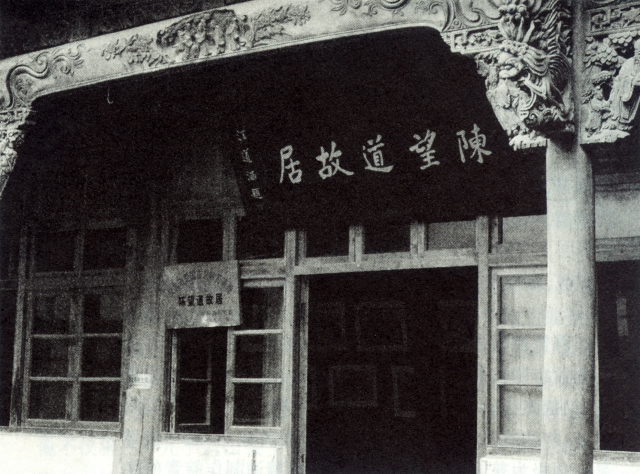
Jinhua Chenwangdao Guju.
Accommodation Options
- Yiwu San Ding Kaiyuan Mingdu Hotel (义乌三鼎开元名都大酒店)
- Rating: 4.6/5
- Price: Starting at ¥554 per night
-
Features: This upscale hotel offers modern amenities, including spacious rooms, a fitness center, and a restaurant serving both local and international cuisine. It’s conveniently located for easy access to local attractions.
-
Yiwu Global Hotel (义乌环球酒店)
- Rating: 4.5/5
- Price: Starting at ¥465 per night
-
Features: With comfortable accommodations and a variety of facilities, this hotel is a perfect base for travelers. Guests can enjoy complimentary breakfast and a relaxing ambiance after a day of sightseeing.
-
Platinum Man Hotel (铂莱曼酒店)
- Rating: 4.8/5
- Price: Starting at ¥231 per night
- Features: Ideal for budget-conscious travelers, this hotel offers clean and comfortable rooms. Its proximity to transportation hubs makes it an excellent choice for those looking to explore the area further.
Conclusion
Whether you’re savoring the local cuisine or relaxing in one of the comfortable hotels, your visit to Chen Wangdao’s residence will be enriched by these delightful options. Dive into the local culture through its food and enjoy a restful stay in Yiwu.
Frequently Asked Questions
-
What is the address of Jinhua Chenwangdao Guju?
The historical site is located in Fenshuitang Village, Yiwu City, Jinhua, Zhejiang Province, China. -
What are the opening hours for visiting Chenwangdao Guju?
The specific opening hours can vary, so it is advisable to contact the site directly for the latest information before planning your visit. -
Is there an admission fee to enter Chenwangdao Guju?
Yes, there is an admission fee; however, the exact price may vary. It’s recommended to check online or contact the site for current ticket prices. -
What should I expect while visiting Chenwangdao Guju?
Visitors can explore a traditional courtyard-style residence built during the Qing Dynasty, along with exhibits that celebrate the life and contributions of Chen Wangdao, a notable figure in Chinese history. -
Are there any nearby attractions I can visit after Chenwangdao Guju?
Yes, nearby attractions include Hesilu Village and the Longxi Fragrant Valley Lavender Garden, both of which offer unique experiences. -
Can I take photographs inside Chenwangdao Guju?
Generally, photography is permitted, but it is advisable to check for any specific restrictions or guidelines upon arrival. -
Is Chenwangdao Guju accessible for visitors with disabilities?
Accessibility details are not commonly provided, so it’s best to inquire directly with the site to confirm available facilities for visitors with disabilities. -
How can I get to Chenwangdao Guju from nearby cities?
Public transportation options like buses and taxis are available from nearby cities such as Jinhua and Hangzhou. It’s best to plan your route in advance and consider using local maps or navigation apps for assistance.
Final Thoughts on Your Trip
Visiting the Jinhua Chenwangdao Guju is more than just a journey through a historic home; it is an exploration of the life and legacy of a remarkable figure in Chinese history. Chen Wangdao’s dedication to education, his role in the May Fourth Movement, and his efforts in translating significant literary works, including “The Communist Manifesto,” highlight his unwavering commitment to societal progress and intellectual freedom.
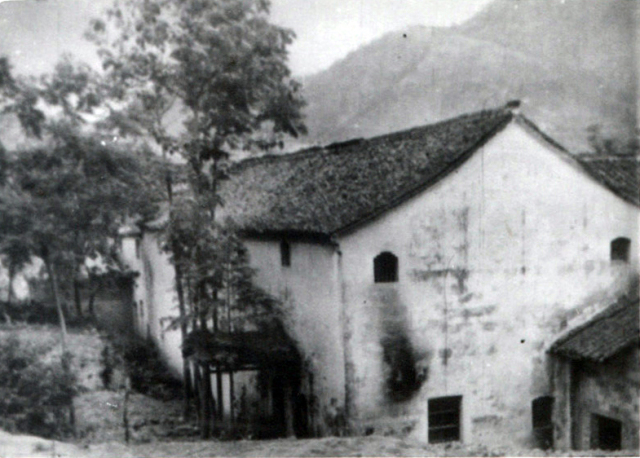
Jinhua Chenwangdao Guju.
As you walk through the well-preserved architecture of this Qing Dynasty courtyard, you are invited to reflect on the transformative power of ideas and the impact one individual can have on the course of history. The residence serves as a reminder of the rich cultural heritage of Yiwu and the broader narrative of China’s revolutionary past.
Whether you are a history enthusiast, a student of literature, or simply a curious traveler, this site offers a unique glimpse into the life of a man whose contributions continue to resonate today. The stories embedded within these walls inspire visitors to cherish the values of perseverance, education, and social responsibility. Make sure to take a moment to appreciate not only the beauty of the architecture but also the profound historical significance of this extraordinary place.
